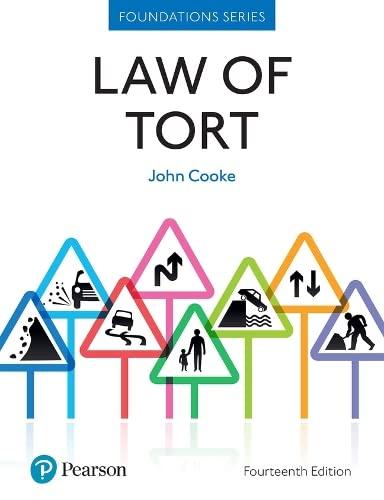1.Do you think Det Callahan is corrupt?Why or why not?What explanation do you have for his behavior?
2.Can you defend Dirty Harry's conduct using any of the three major ethical systems? (deontological, teleological and virtue-based ethics).
These two questions are related with given picture, it can help you solving the questions. these questions are from the movie DIRTY HARRY 1971
READ THE PICTURE TO ANSWER THE QUESTIONS
82 Chapter 6 . Police ETHICS CHECKUP Dirty Harry Clint Eastwood starred in a series of films during the on the wounded leg, while asking for the location of the 1970s and 1980s in which he played a cynical police kidnapped girl.40 detective named Harry Callahan. The first of these Dirty Harry gets the information, but the girl's films was titled Dirty Harry, and it contained a se- body (she was already dead) and other evidence were quence in which an unsympathetic criminal kidnapped subsequently excluded in court because of the method of a 14-year-old girl for ransom. Dirty Harry ultimately the interrogation. catches up to the criminal and shoots him in the leg as Can you defend Dirty Harry's conduct using any of he tries to escape. Harry tortures the criminal, standing the three major ethical perspectives? more visible to serve as examples and deterrents and making sure police officers do not get into debt. Other, longer-term strategies include more exhaustive background checks of recruits, periodic retraining of all police, and measures aimed at enhancing professionalism by allowing leaves for study or specialized training." These sorts of strategies are likely to work because they attempt to improve the ethical commitment of individual officers to the ideals and values of a law enforcement career. If corruption is found to be a result of problems in the department itself, a different set of control strategies would be appropriate. For example, establishing civilian review boards to hear complaints against the department and offer an ethi- cal perspective from outside the department and enhancing career mobility within the department may help prevent hidden corruption. Likewise, procedures to ensure the fair and confidential hearing of personnel matters within the department and to guarantee that promotions are based on qualifications, rather than on patronage, can police work. help prevent political considerations and unethical practices from inhibiting honest When corruption is the result of external, governmental factors, the most fruit- ful strategies improve police supervision and decision making. Supervision of officers can be improved by making sure that only qualified police and government officials are given supervisory responsibilities. Ethical conduct must be considered an essential qualification. Political reform through legislation may be needed to eliminate govern- ment interference with police department operations. Similarly, decriminalizetion of minor undesirable behaviors would eliminate opportunities for bribery and corruption by removing "victimless" crimes from police jurisdiction. In its New York City investigation, the Knapp Commission found that the most important source of police corruption was control of the city's gambling, narcotics, loan-sharking, and illegal sex-related enterprises. The next most important source was "legitimate business seeking to ease its way through the maze of City ordinances and regulations."*In this case, changes in laws and regulations could have a substantial impact on police corruption. The Knapp Commission noted that "The laws against gambling, prostitution, and the conduct of certain business activities on the Sabbath all contribute to the prevalence of police corruption."43 One expert concluded that without "a public commitment.... to realistic vice laws . . . the elimination of police corruption this chapter. will not occur." The potential impact of police codes of ethics is discussed later in







